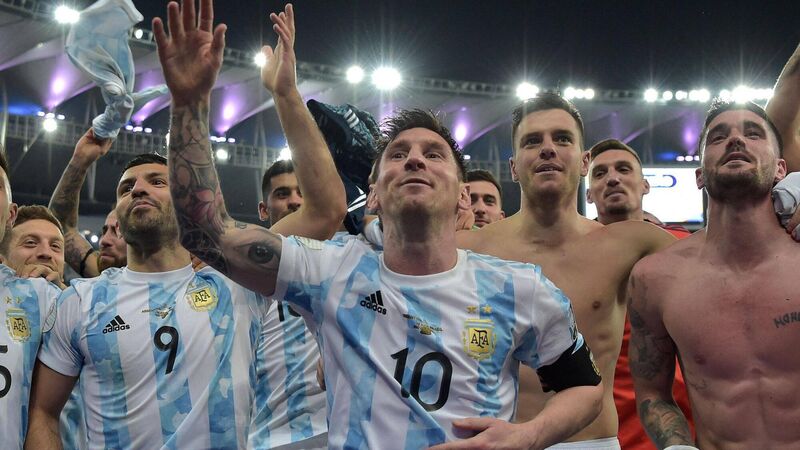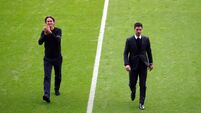Paul Rouse: Messi's ecstasy as fragile Brazil melt in the Maracana

Argentina's Lionel Messi and teammates Sergio Aguero, Giovani Lo Celso) and Rodrigo De Paul celebrate after winning the Copa America against Brazil at the Maracana Stadium.
There is something thrilling about staying up through the early hours of the morning to watch live soccer from South America.
Our relationship with time and distance has been fundamentally changed by modern technology, particularly the Internet. But when the soft darkness of a mild summer’s night in Ireland is brightened by TV pictures of Brazil playing Argentina, it is nonetheless a throwback to the joy of staying up late in childhood summers watching the World Cups of 1978 and 1986.











